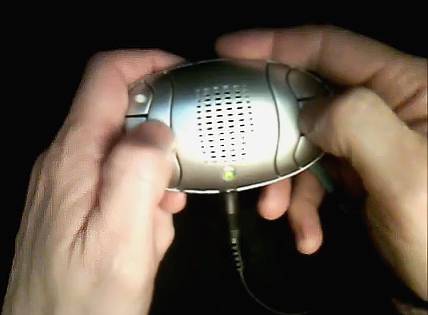
FAQ About The Evolution of Musical Instruments in Artificial Intelligence

What is artificial intelligence's role in musical instruments?
Artificial intelligence (AI) plays a crucial role in the innovation and evolution of musical instruments by enhancing sound synthesis, assisting in the design process, and enabling new forms of interactivity. AI algorithms can analyze vast amounts of musical data to create richer, more nuanced sounds and facilitate real-time music composition and improvisation.

How has AI changed the way musical instruments are created?
AI has transformed the creation of musical instruments by enabling the use of algorithms in the design process to optimize sound quality and performance characteristics. Generative design techniques allow designers to explore a broader array of possibilities, producing instruments that could offer new and unique acoustic properties.

Can AI modify existing musical instruments?
Yes, AI can modify existing musical instruments by altering their tonal quality, adding electronic components, or even adapting them to create hybrid instruments. AI-driven software can analyze an instrument's acoustics and suggest modifications for improved sound or functionality.

What are some examples of AI-driven musical instruments?
Examples of AI-driven musical instruments include electronic synthesizers that use AI to generate new sounds, self-playing pianos, and intelligent guitars that can assist musicians by providing real-time feedback or suggestions. These instruments can offer enhanced creative possibilities for artists.

How does AI impact music innovation through instruments?
AI impacts music innovation by enabling new forms of expression and composition, enhancing live performances with real-time sound modifications, and allowing for the creation of entirely new types of instruments. This technological integration opens up endless possibilities for musicians and composers to explore new musical landscapes.

What does the future hold for AI and musical instruments?
The future of AI and musical instruments is likely to involve even more sophisticated interactions, where instruments can learn and adapt to a musician's style, provide personalized feedback, and integrate more deeply with digital production environments. These advancements could lead to more intuitive and powerful tools for creating music.

Can AI enhance the performance capabilities of musical instruments?
Yes, AI can enhance the performance capabilities of musical instruments by providing real-time analysis and feedback, enabling adaptive sound modification, and offering musicians tools to explore new musical possibilities that were previously inaccessible with traditional instruments alone.

What are hybrid musical instruments in the context of AI?
Hybrid musical instruments combine traditional craftsmanship with AI technology to create systems that can perform unique and innovative musical functions. These instruments might include both acoustic elements and digital sound processing, allowing them to produce complex soundscapes and interactive musical experiences.

How does AI assist musicians in composing music with instruments?
AI assists musicians in composing music by providing tools that can generate musical patterns, suggestions for chord progressions, and new melodies. AI-driven software can also analyze a musician's style and offer personalized recommendations for creating complex compositions more efficiently.

Are there any AI tools that help improve the sound quality of instruments?
Yes, AI tools exist that can enhance the sound quality of instruments by analyzing audio recordings and suggesting modifications to improve tonal characteristics. These tools can assist in fine-tuning instruments for optimal performance both in studio settings and live environments.

What is the significance of AI in electronic musical instruments?
AI holds great significance in electronic musical instruments as it allows for new forms of sound synthesis, smarter user interfaces, and the integration of interactive features. This leads to instruments that can adapt to user input in creative ways, fostering an innovative musical experience.

Can AI-generated music compete with human-composed music?
AI-generated music can offer compositions that are complex and innovative, often indistinguishable from human-composed pieces to untrained ears. However, the emotional depth and subjective interpretation that a human composer brings are challenging for AI to replicate entirely. AI music is complementary, rather than competitive, to human music creation.

What common misconceptions exist about AI in musical instruments?
A common misconception is that AI will completely replace human musicians. In reality, AI serves as a tool that enhances and expands the capabilities of musicians, offering new creative opportunities without diminishing the value of human artistry and expression.

How do AI technologies ensure musicians retain creative control?
AI technologies are designed to function as collaborative tools, allowing musicians to retain creative control by providing suggestions, augmenting musical possibilities, and automating repetitive tasks, thereby empowering artists rather than dictating creative decisions.

What challenges do AI developers face in creating musical instruments?
Developers face challenges such as ensuring natural sound quality, maintaining the expressiveness and responsiveness of instruments, integrating intuitive user interfaces, and addressing the ethical concerns surrounding AI's role in creative processes. Balancing these factors is crucial for successful AI-driven musical instrument development.

How does AI influence live music performances?
AI influences live music performances by enhancing improvisational capabilities, automating complex effects, and providing real-time sound manipulation. This allows performers to experiment with new sounds and dynamic interactions with audiences, thereby enriching the overall live music experience.

Are there ethical concerns involving AI in musical instruments?
Yes, ethical concerns include issues around creative authorship, dependency on technology, and the potential marginalization of traditional musicianship. Addressing these concerns involves ensuring transparency about AI's role in music creation and promoting a balanced relationship between AI and human creativity.

What are the benefits of integrating AI with traditional musical instruments?
Integrating AI with traditional instruments offers benefits such as enhanced expressiveness, easier access to creative tools, and new possibilities for sound exploration. It enables musicians to blend digital and acoustic elements, expanding their artistic repertoire and capabilities.

Can AI learn from musicians to improve instrument capabilities?
AI systems can learn from musicians by analyzing their playing styles and preferences, allowing instruments to adapt and offer personalized features or training aids. This learning process can result in more responsive and intuitive instruments tailored to individual musical needs.

How is AI being used to develop new musical scales or tones?
AI algorithms analyze vast datasets of musical compositions to identify patterns and propose new scales or tones that may not conform to traditional Western musical structures. By exploring global music traditions and experimenting with novel combinations, AI can contribute to a richer diversity of musical sounds and practices.
